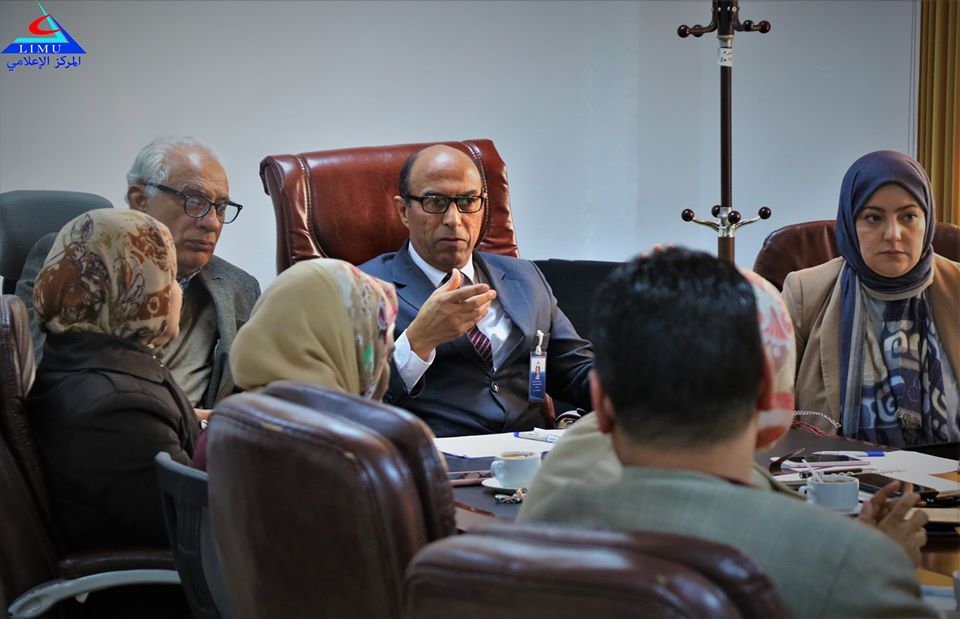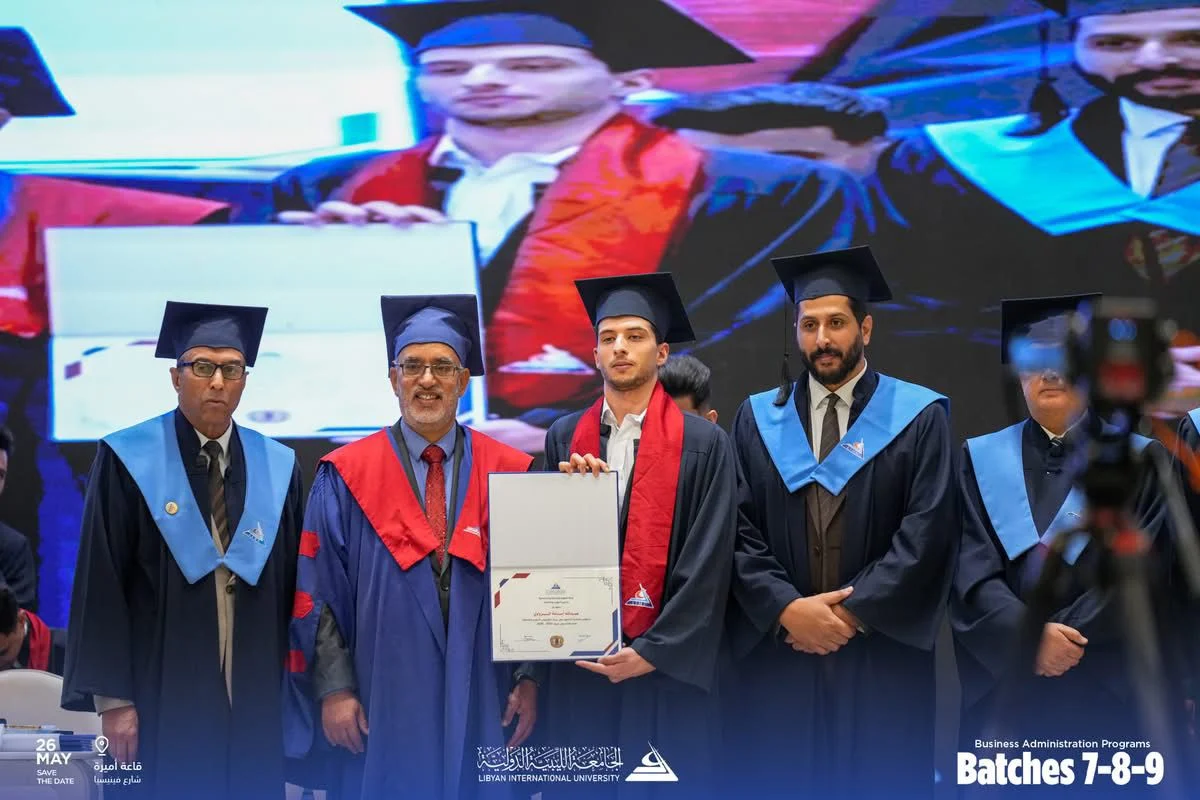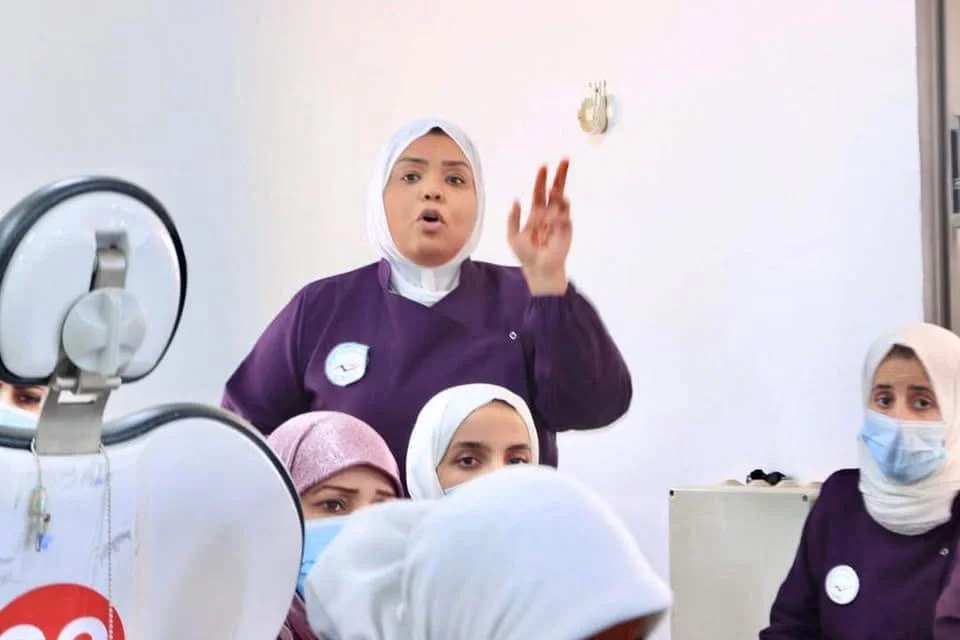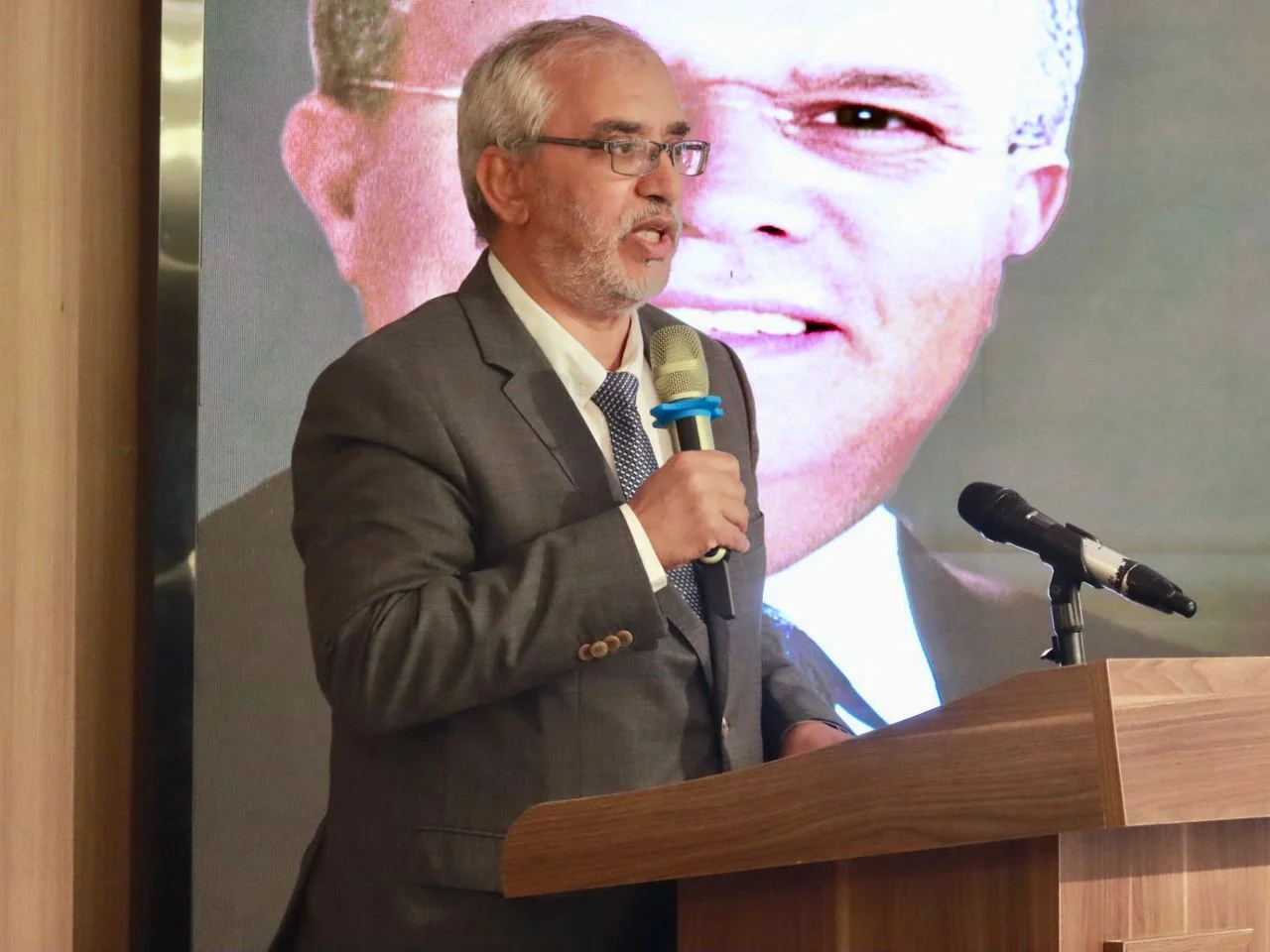Meeting of the advisory committee for the medical laboratory program
Mr. Dean headed the College of BMS. Dr. Abdullah Al-Mansoori yesterday morning a meeting of the advisory committee of the medical laboratory program, focusing on the importance of the clinical laboratory science program and the needs of the labor market for him, and discussing what the advisory committee presented to the program.
The meeting included visiting professors from the Republic of Sudan: Dr. Hussein Hamed, Assistant Professor in Medical Laboratories at the University of Kordofan, and Dr. Khabab Abdel Moneim, Head of the Quality and Accreditation Department at the Sudanese National Council for Medical Specializations and Lecturer at the University of Science and Technology, in the presence of the Vice-Dean of the College of Basic Medical Sciences, Dr. Forbade drowsiness and Prof. Mustafa Al-Fakhri, Vice President for Graduate Studies and Dr. Ramadan Sati, President of the Laboratory Medicine Syndicate and d. Jamila Al-Sheikhi is a delegate from the Medical Specializations Council in addition to faculty members.
It is worth noting that the BMS College of Basic Medical Sciences had launched this year its new program for granting a Bachelor’s degree in Science Clinical Medical Laboratories, which provides its students with a strong foundation in medical science and provides them with training opportunities in the fields of laboratories, medical research, and management during a four-year academic period that includes a period of Intensive practical training in college laboratories and hospitals.
The college also adopts the system of equation, and the college\’s equation committee studies the documents supporting the student of the equation, and studies each individual case.
The college guarantees through the #Medicals_Medical Program to provide innovative curricula that respond to the needs of the profession and qualify graduates specialized in medical laboratories, who are able to engage in health care fields with high possibilities of theoretical knowledge and technical skills to contribute to providing a high-quality diagnostic service through their ability to link the relationships between laboratory data and health And pathological variables, including what qualifies them to work in complexes, medical laboratories, hospitals, pharmaceutical, and food factories, in addition to job opportunities in the fields of biotechnology, medical research centers, and areas of medical product development.
This program was designed according to the requirements of the national and international academic accreditation, such as the accreditation of the British Biomedicine Institute and the American Clinical Diseases Association, which gives graduates the opportunity to obtain # professional fellowships for micro specializations such as the Royal College of Pathology Fellowship and the American Disease Society.
Through this program, the Faculty of Basic Medical Sciences at the Libyan International University of Medical Sciences confirms its leadership at the national and regional levels with its programs and scientific curricula in a way that guarantees graduates who enjoy high efficiency in the academic and practical fields, and that achieves its goals in raising the quality of work in medical laboratories and enriching scientific research, and qualifying its graduates. With professional quality and high research ability.



